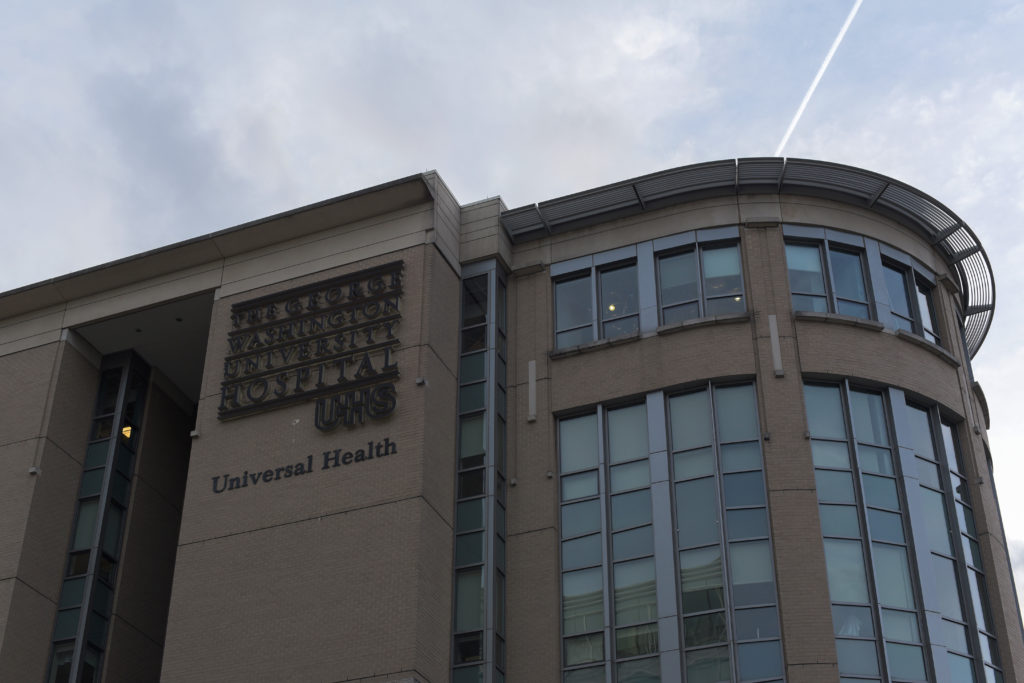A medical malpractice lawsuit filed in the D.C. Superior Court Tuesday claims that GW Hospital doctors failed to properly diagnose and treat a patient, causing him to become permanently disabled.
The 23-page complaint alleges that GW Hospital failed to find and treat an abscess, a collection of pus, located in plaintiff Kareem Jenkins’ neck last year. The abscess compressed 43-year-old Jenkins’ spinal cord and rendered him paralyzed from the neck down three days after he visited the hospital with complaints of neck pain and stiffness, according to the complaint.
Jenkins, represented by attorneys H. Briggs Bedigian, Jon Stefanuca and Jack Olender, is suing the hospital and two GW doctors for $50 million on one count of negligence and one count of failure to obtain informed consent. Informed consent, as outlined in the D.C. Code, requires doctors to provide patients with all treatment options.
“Given the nature and severity of Mr. Jenkins’ symptoms and his reported history of HIV infection and absence of any injury, the physicians and nurses in the emergency department at GWUH should have considered possible abscess in their differential diagnosis and should have undertaken a diagnostic work up to rule it out,” the lawsuit states.
Jenkins did not return multiple requests for comment. Two of his lawyers did not return multiple requests for comment, while Bedigian declined.
Susan Griffiths, a spokeswoman for GW Hospital, did not return a request for comment. Robert Shesser, the chair of GW Hospital’s Department of Emergency Medicine, and emergency medicine resident Joshua Oppenheimer are named as defendants in the case. Shesser declined to comment, and Oppenheimer did not return multiple requests for comment.
Jenkins allegedly entered the emergency room at GW Hospital on June 13 with complaints of “severe worsening neck pain and stiffness” that he began to experience the day prior. Jenkins claimed that he could not move his head side to side and rated his pain as a 10 out of 10.
Jenkins allegedly spent five hours in the emergency room, where doctors recorded high blood pressure and an elevated heart rate. Doctors did not complete a diagnostic workup and instead provided the patient with Toradol, Tylenol and Valium, the suit states.
Doctors then allegedly told Jenkins that their evaluation had been “reassuring,” and it was “safe for him to go home.” But three days later, Jenkins fell in his house and “was unable to get up or move” for several hours. The plaintiff used a voice-controlled Alexa device to contact a family member, who contacted 911, according to the complaint.
The plaintiff was transported to MedStar Washington Hospital Center, where doctors discovered an abscess on his spinal cord that had caused quadriplegia from the neck down. He underwent surgery and stayed in the intensive care unit for 10 days, the suit states.
Jenkins has since regained use of his upper body but cannot control his legs, bowels or bladder. He “is permanently disabled, unable to work and will require attendant care for the rest of his life,” the suit states.
“The epidural abscess that was diagnosed at MedStar Washington Hospital Center should have been diagnosed three days earlier by the physicians and nurses in the emergency department at GWUH,” the suit states. “If they had diagnosed and treated Mr. Jenkins on June 13, 2018, as they were required to do under the national standard of care, he would have avoided the permanent, devastating neurological deficits and other damages that he sustained.”





